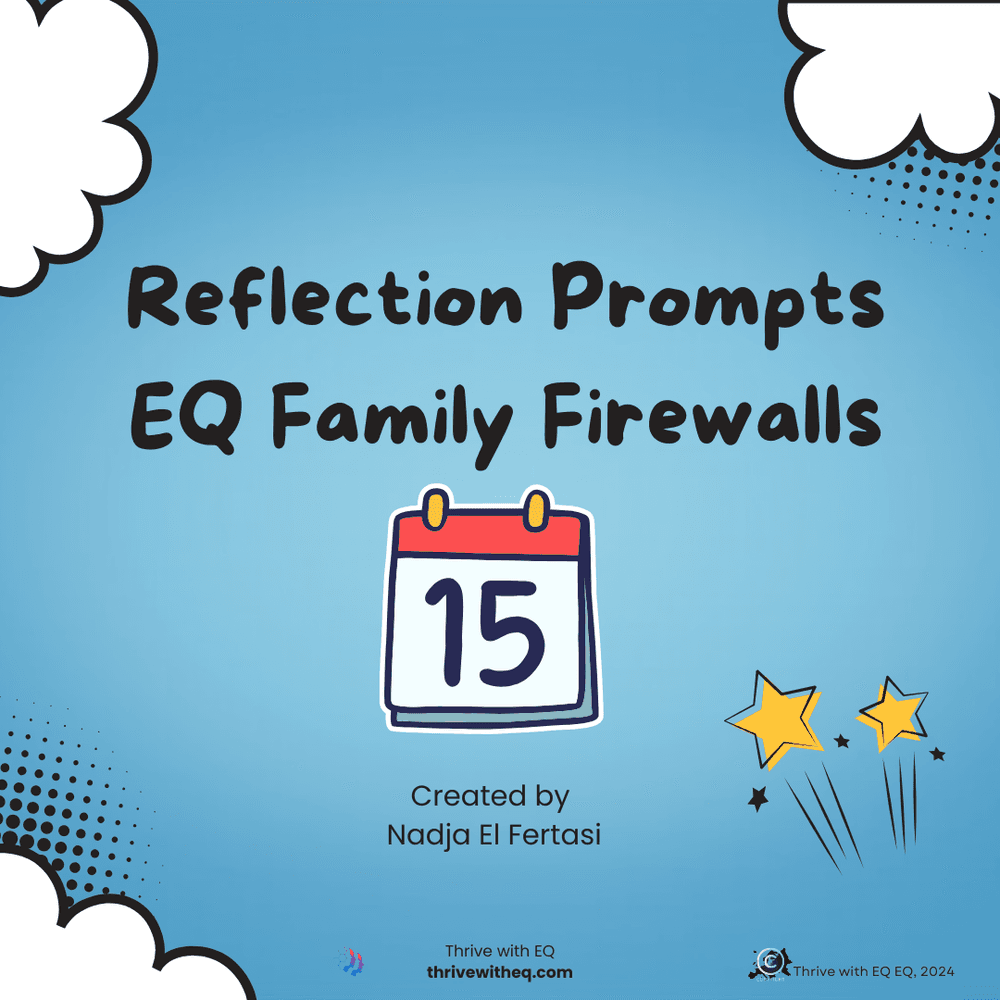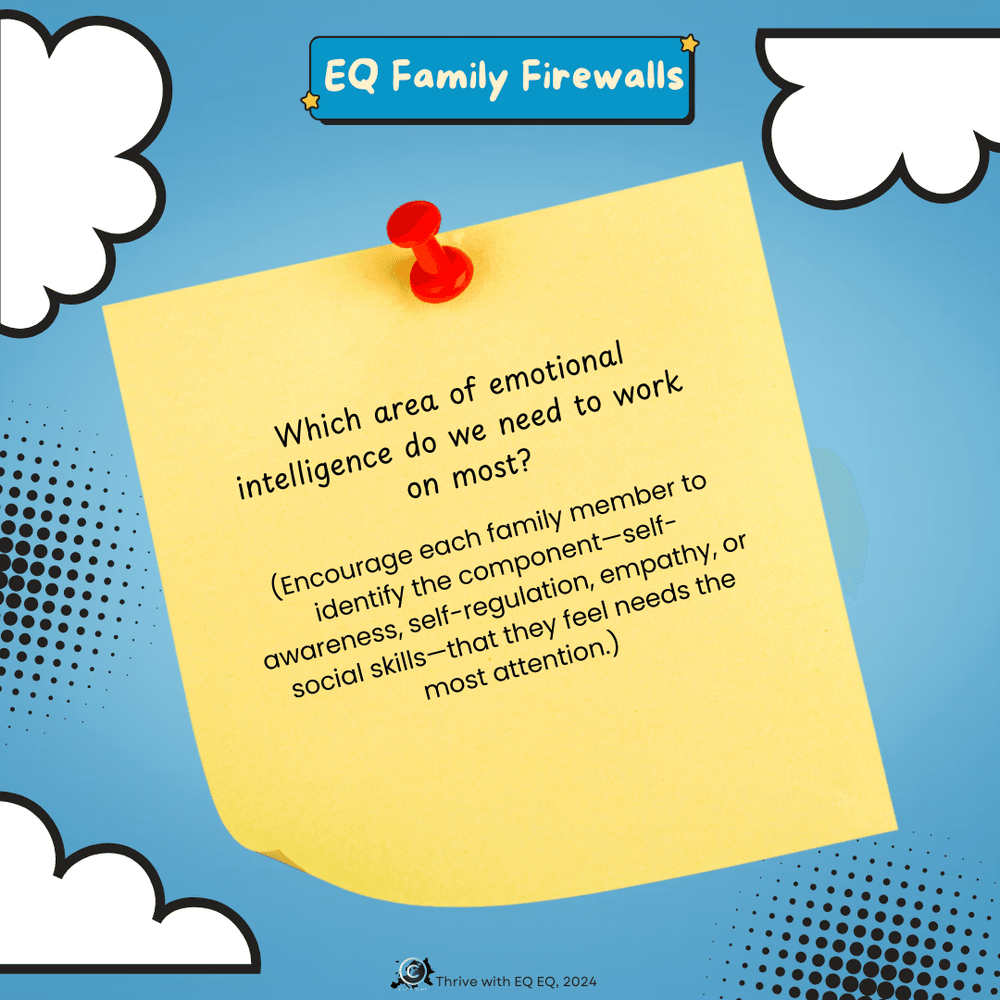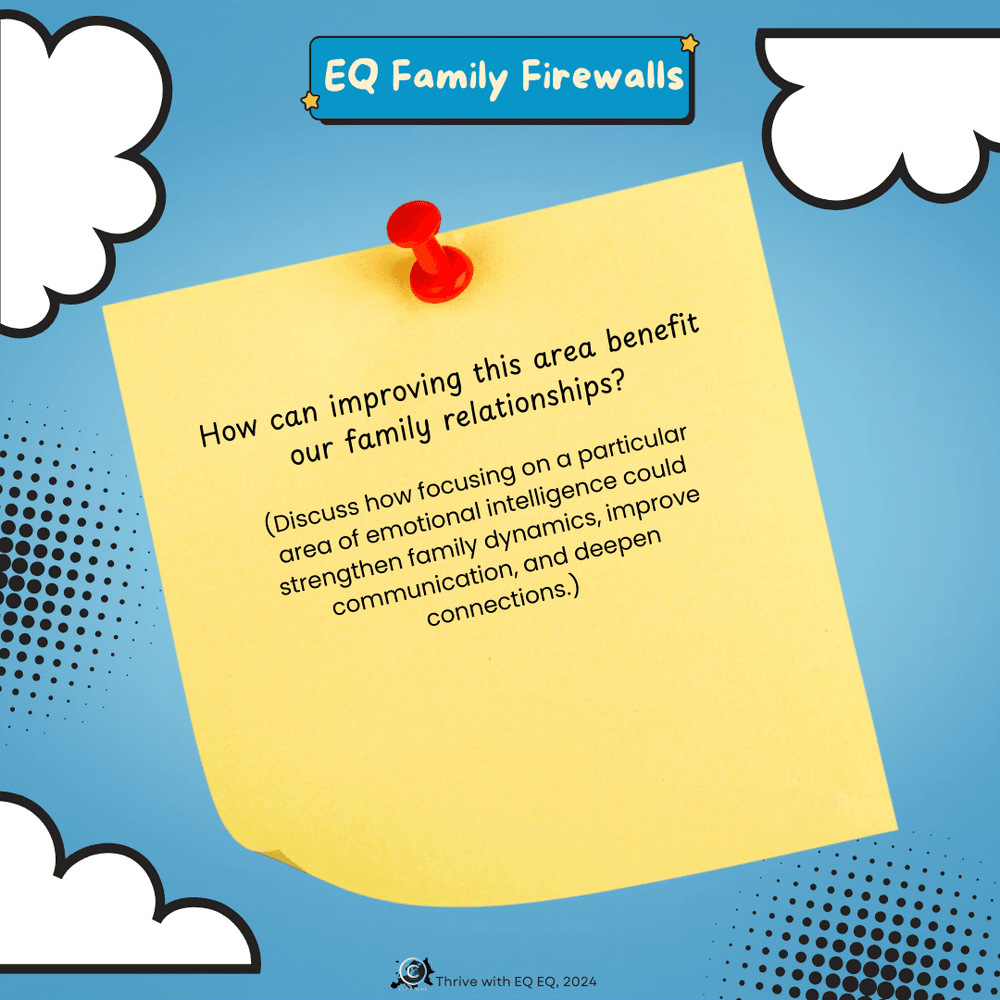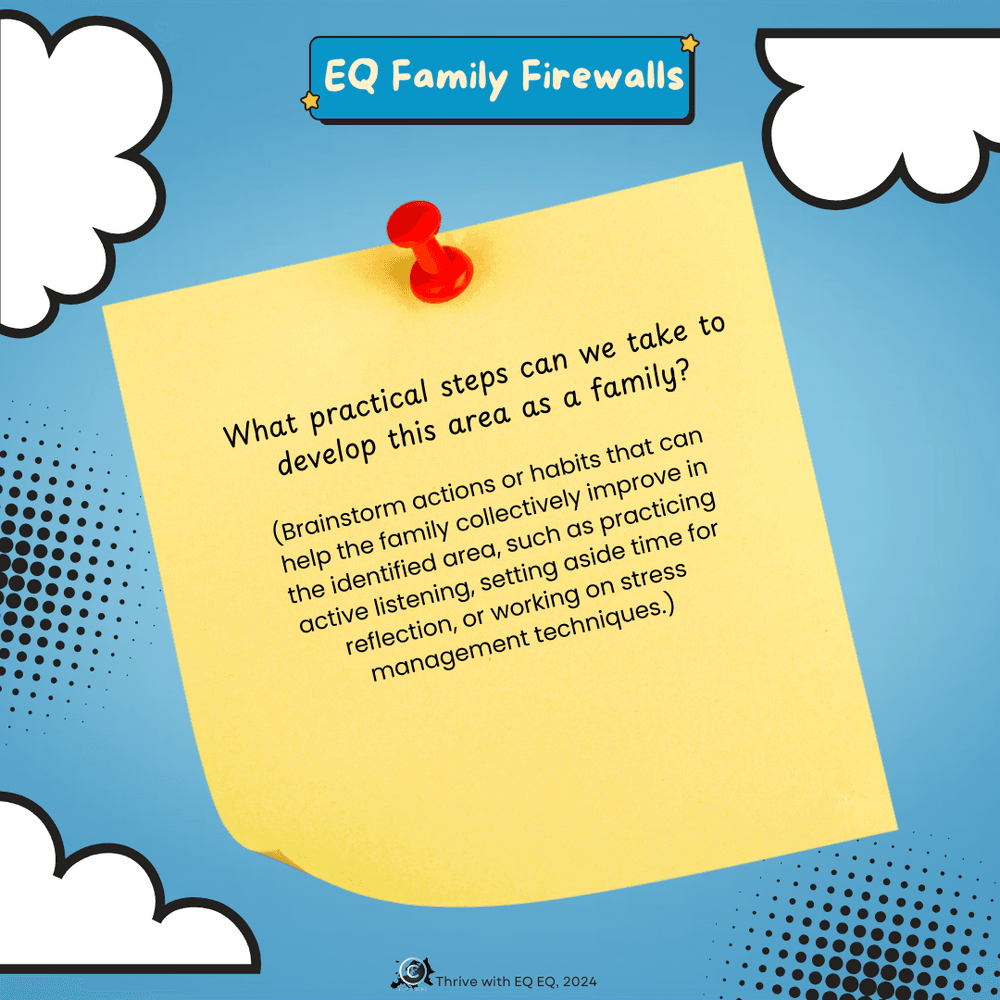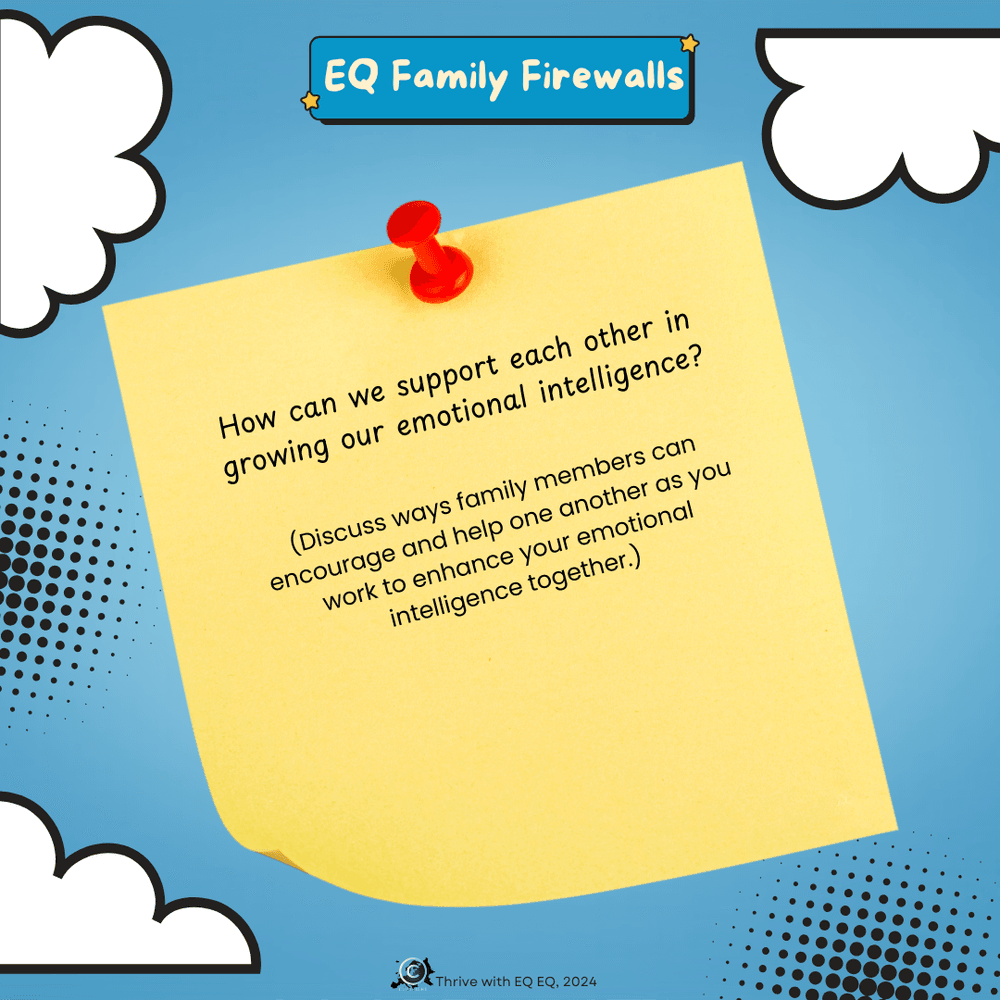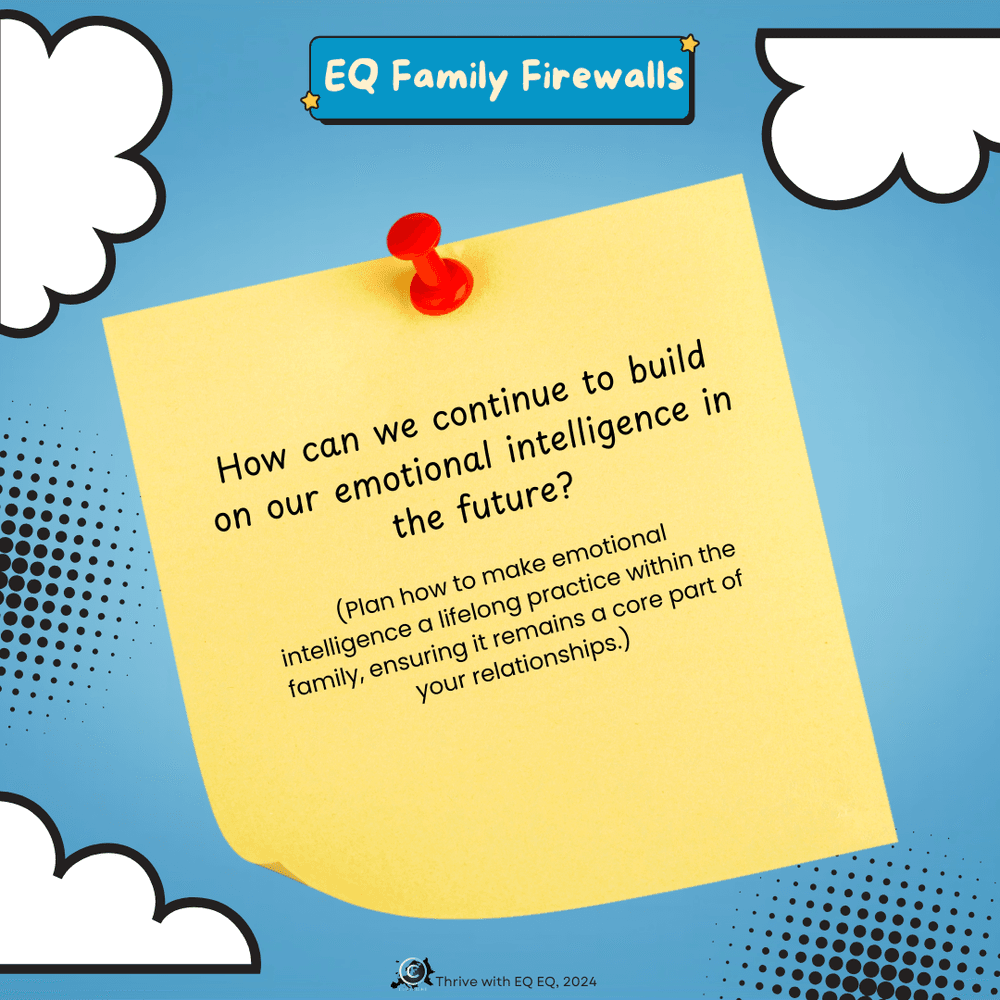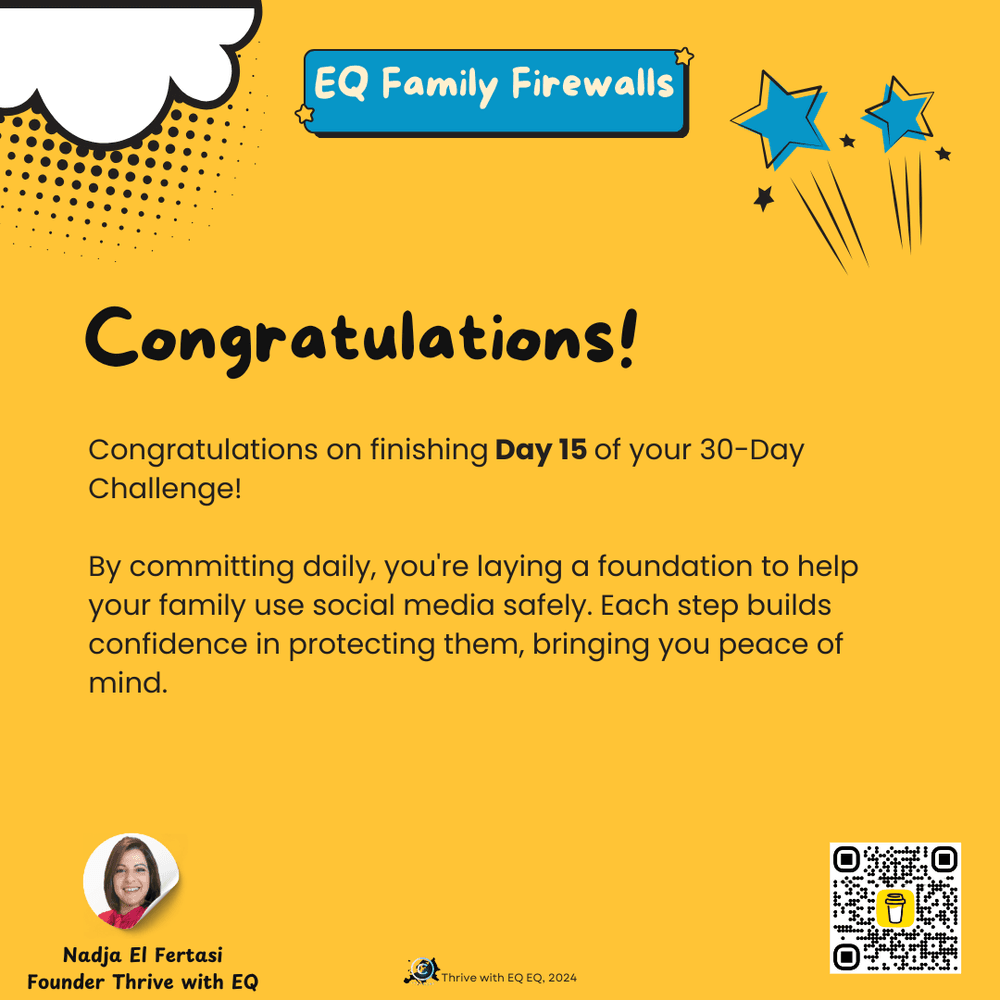Welcome back to Day 15 of your 30-Day Challenge to keep your family safe and secure with emotional firewalls!
Today marks the halfway point in our journey, and it’s a perfect time to dive into a foundational concept: emotional intelligence.
Emotional intelligence is the ability to recognize, understand, and manage our own emotions, as well as the emotions of others.
It’s a skill that plays a crucial role in building strong, healthy relationships—both online and offline. EQ is the emotional quotient that measures your emotional intelligence.
Often these terms are used interchangeably, but they refer to the same: emotional intelligence. My company's name, all of my work uses EQ as the foundational reference, so that is what we are going with on this journey of helping you build emotional firewalls.
The Core Components of Emotional Intelligence as used in the EQ-i 2.0 model:
1. Self-Perception: The ability to recognize and understand your own emotions. This includes having accurate self-awareness, self-regard, and a clear sense of your strengths, weaknesses, and inner confidence.
2. Self-Expression: The ability to express your emotions effectively and assertively. This involves being open, honest, and confident in communicating your feelings, while also being emotionally independent and authentic.
3. Interpersonal: The ability to develop and maintain healthy, mutually satisfying relationships. This includes demonstrating empathy, fostering interpersonal relationships, and maintaining social responsibility by contributing positively to your community.
4. Decision Making: The ability to use emotional information effectively to solve problems and make decisions. This includes impulse control, reality testing, and problem-solving, ensuring that your emotions support, rather than hinder, your decision-making process.
5. Stress Management: The ability to cope with challenges and pressures. This involves managing stress, staying adaptable in the face of change, and maintaining an optimistic outlook, all while keeping emotions in check to remain resilient.
Applying Emotional Intelligence to Family Dynamics:
Emotional intelligence isn’t just an individual skill—it’s a key factor in family dynamics. When family members are self-aware, regulate their emotions, empathize with each other, and communicate effectively, it strengthens the entire family unit. By focusing on these core components, your family can enhance your relationships and navigate challenges with greater ease.
Identifying Areas for Growth:
As a family, it’s important to reflect on where you’re strong and where you might need to grow in terms of emotional intelligence. Perhaps you excel at empathy but need to work on self-regulation, or maybe communication is a strength, but self-awareness could use some attention. Identifying these areas allows you to focus your efforts on continuous improvement.
By understanding and applying the principles of emotional intelligence, you’re building a stronger, more connected family. As we continue our challenge, these skills will serve as the foundation for your emotional firewalls, helping you navigate both the digital world and everyday life with confidence and care. See you tomorrow for Day 16 of the Emotional Firewalls Challenge!

